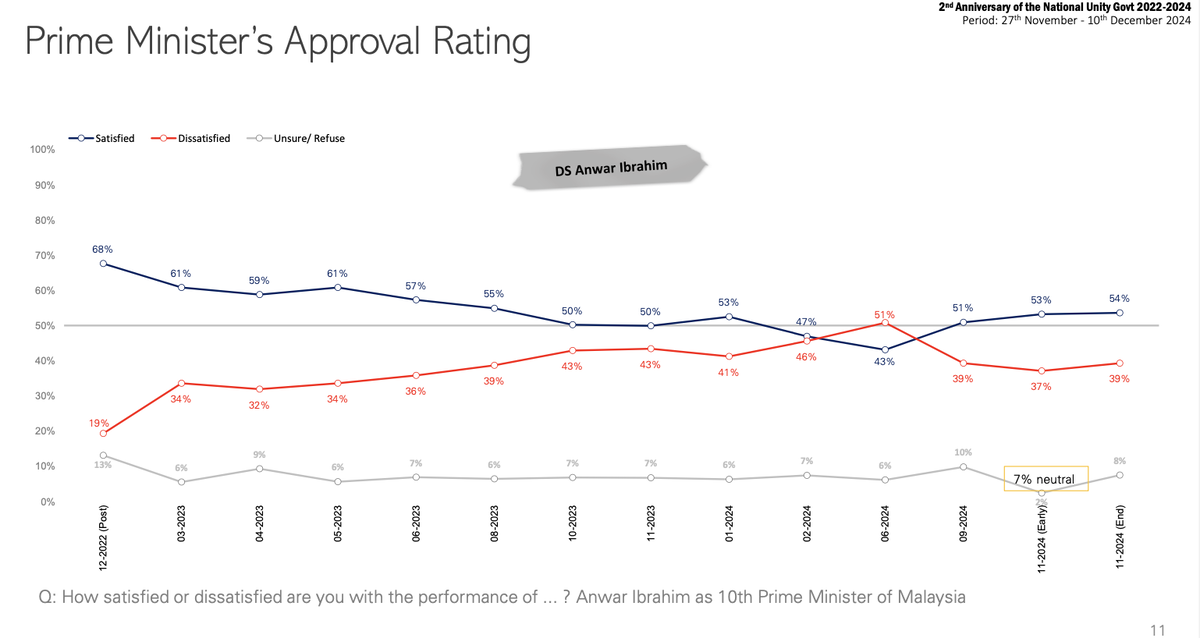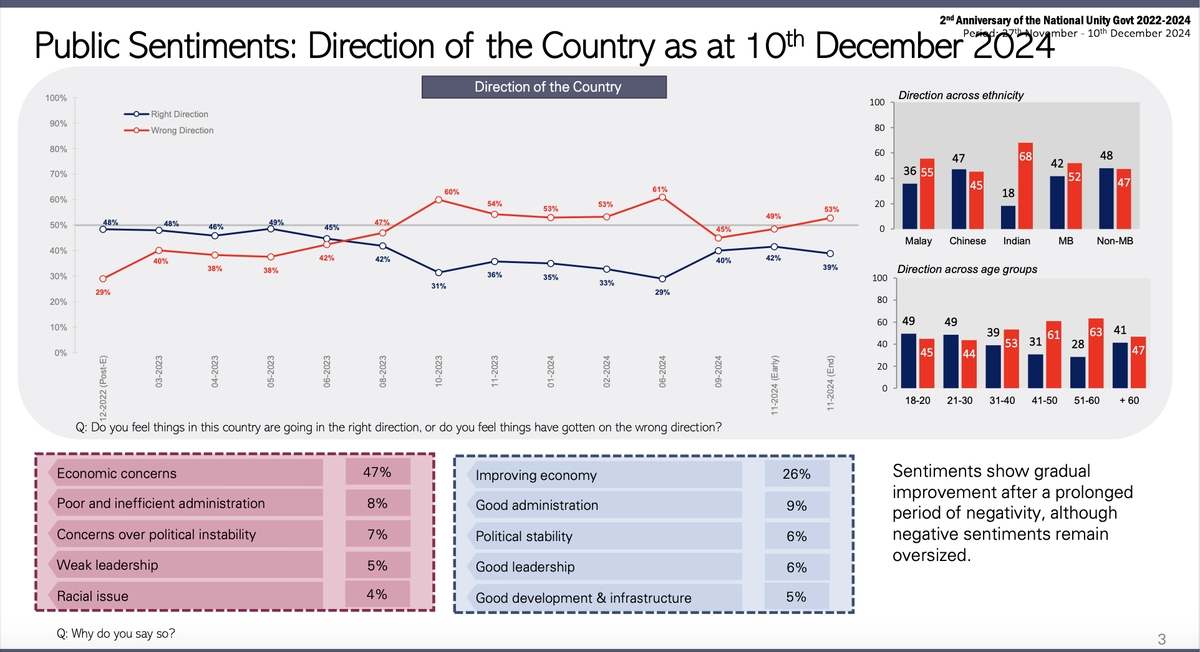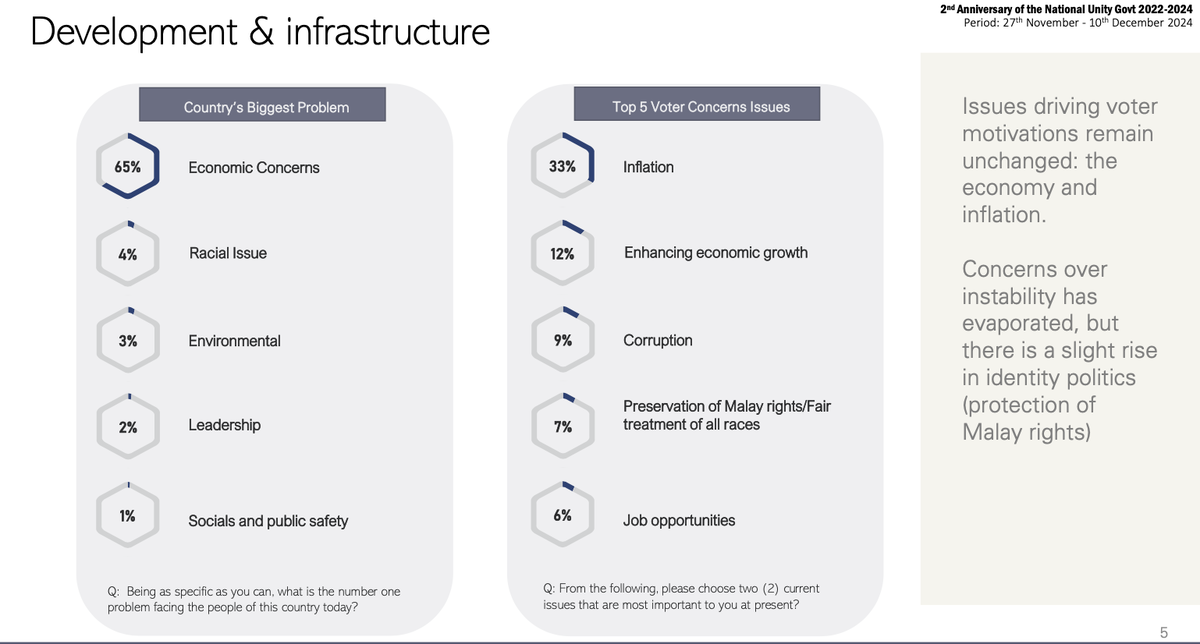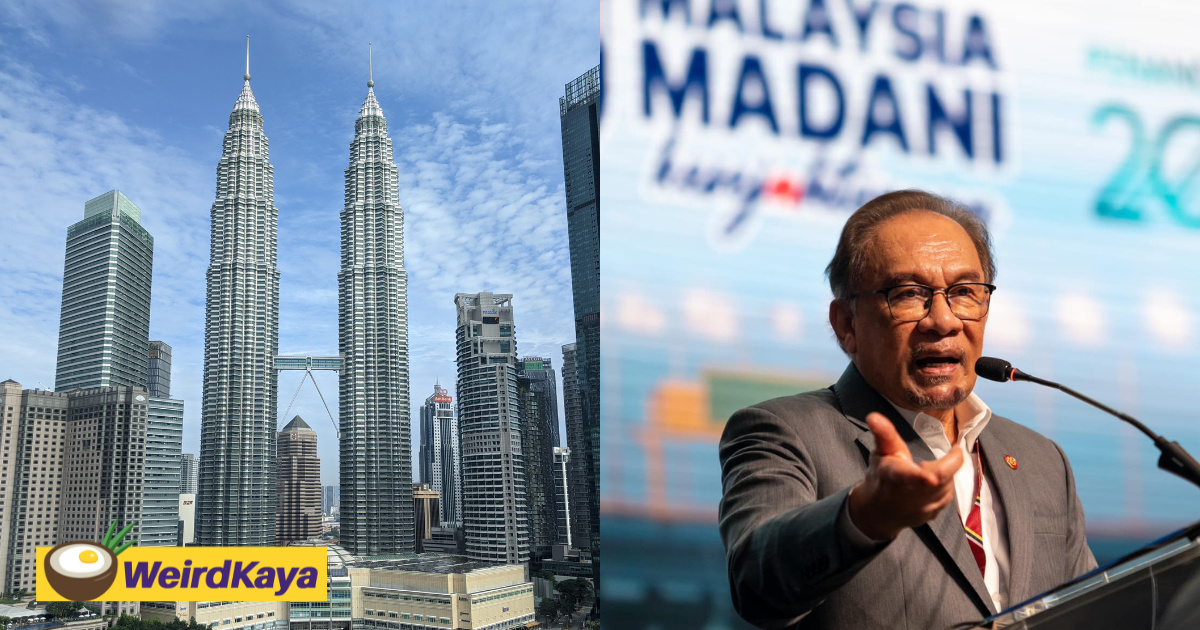A recent survey conducted by the Merdeka Center reveals a mixed response from Malaysians regarding the leadership of Prime Minister Datuk Seri Anwar Ibrahim and his government’s performance as it marks its second anniversary.
The survey shows an increase in satisfaction levels compared to the previous year, with Anwar’s approval rising from 50% to 54%, and the government’s approval from 46% to 51%.

Direction of the country
Despite this increase in satisfaction, a significant number of respondents, more than half, believe that the country is heading in the wrong direction.
The survey found that only 39% of respondents believed Malaysia was heading in the right direction, while 53% thought the country was on the wrong path.

The survey, which was conducted between November 27 and December 10, 2024, with 1,207 respondents, highlighted areas where Anwar’s leadership garnered positive feedback.
Concerns over rising prices & subsidy
In particular, the public was satisfied with efforts to attract foreign investment (62%), improve the country’s image (59%), and enhance the efficiency of civil servants (54%).
However, when it came to improving the economy, the satisfaction and dissatisfaction levels were nearly equal, with 45% satisfied and 44% dissatisfied.
The survey also pointed to a noticeable disparity between satisfaction and dissatisfaction with the government’s overall performance, both of which were close at 47%.
This suggests that concerns over rising prices and subsidy rationalization remain key issues for the public.
While concerns about the economy have decreased from 74% last year, 65% of respondents still worry about the economic situation.

Other notable concerns include race-related issues (4%), environmental concerns (3%), leadership issues (2%), and social and public safety issues (1%),” the survey reported.
Inflation is the main concern
In terms of the top issues concerning voters, inflation and economic growth dominated, with 33% and 12% of respondents listing them as their primary concerns.
Other concerns included corruption (9%), preservation of Malay rights/fair treatment of all races (7%), and job opportunities (6%).
Among the reasons cited for this negative outlook, economic concerns stood at 47%, followed by administrative inefficiency (8%), political issues (7%), leadership concerns (5%), racial issues (4%), and 13% of respondents who were uncertain.
In contrast, the government’s efforts in improving inter-ethnic relations received a more favorable response, with 51% satisfied and 42% dissatisfied.
This survey paints a complex picture of Anwar’s government, showing a rise in overall satisfaction but also significant concerns among the public, particularly in economic management and rising living costs.


